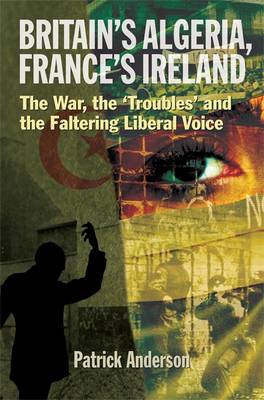One reason for the slow reconciliation in Northern Ireland is the considerable difficulty in coming to terms with the past. For Ulster Unionists the conflict was about a democracy beset by terrorism. For Irish republicans it was a war of resistance to British repression. This book explores these widely diverging explanations using Noam Chomsky's propaganda model to evaluate the media coverage of the 'Troubles' with its historic match, the Algerian War of 1954-62.The two conflicts generated remarkably similar media dramas including the FLN's 'Battle of Algiers' and the IRA bombing campaign. French and British counter-insurgency methods resulted in torture, notorious civilian massacres (Bloody Sunday and rue d'Isly) and a refusal to follow the policies of their political masters. Loyalist paramilitaries, like OAS 'counter-terrorists', were plausibly deniable adjuncts, acting in support of the state. Also included is a reappraisal of Conor Cruise O'Brien's famous criticism of Camus for refusing to support the FLN. O'Brien and British liberal opinion explained Algeria as the classic 'anti-colonial' struggle but missed the jihadist dimension.In Ireland all was reversed, the legacy of colonialism was rejected and a religious explanation was promoted.
The liberal press urged Paris to negotiate to ensure peace but recommended London to get on top of the gunmen before any reforms. Not everyone was convinced. Politicians in Paris described Algeria as France's Ireland while the British Cabinet secretly discussed withdrawal under the codeword 'Algeria'. While Camus's predictions have come true the reporting of Ireland is revealed as little more than a first (propaganda) version of history.
- ISBN10 1782051600
- ISBN13 9781782051602
- Publish Date 18 January 2016
- Publish Status Out of Print
- Publish Country IE
- Imprint Cork University Press
- Format Hardcover
- Pages 246
- Language English
- URL http://corkuniversitypress.com/Britain-s-Algeria-France-s-Ireland-p/9781782051602.htm
